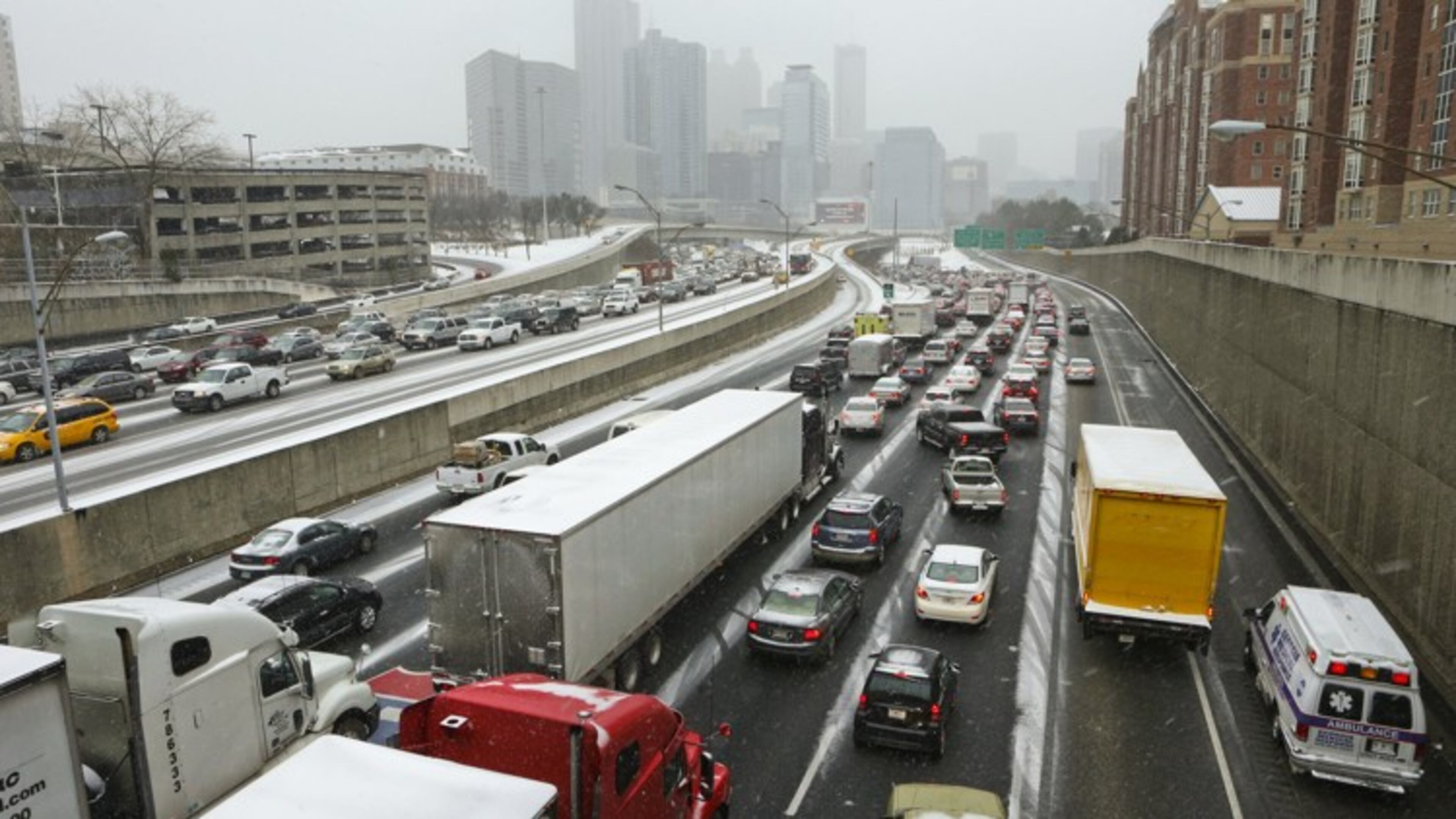Gridlock Guy: Increased travel delays add costs to trucking industry

There is no question that traffic is worse in many areas around the nation. The economy is doing well, so more people are working, traveling and consuming. The trucking industry is the backbone of consumption, as over 11.2 million trucks in 2015 shuttled goods all over country. Studies come out quite often ranking metro area commutes nationwide or measuring their length (measurements I sometimes question). A brand new data dump from the American Transportation Research Institute shows just how much congestion on the roads costs commercial trucks — in both time and dollars.
ATRI’s “Cost of Congestion to the Trucking Industry: 2017 Update” articulates how many hours in struck traffic that trucks experience. The study translates this into a cost, based upon the $63.70 per hour rate, which is the average cost to operate a truck. In 2015, the most recent year data is available to test, the trucking industry experienced over 996 million hours of delays on the National Highway System. This means that the extra hours on the road for these trucks cost the industry roughly $63.4 billion in 2015. The ATRI study also calculates that trucks in the U.S. traveled 279,843,596,449 miles in 2015, which means bad traffic cost each truck an average of $.23 per mile, up from $.18 in 2014.
Possibly the most harrowing figure in the study is a physical equation of the delays. The hours of delays in 2015 are equivalent to 362,243 trucks sitting idle for an entire working year. This study considers a truck’s working year 55 hours per week, 50 weeks a year. Congestion slows commercial trucks to the effect equal to 3.2 percent of the total number of American trucks not operating for an entire year.
Let’s drill this down to the local level. Metro Atlanta, one would think, would be one of the nation’s “leaders” in commercial trucking gridlock. Not in this study. Different lists measured the total costs of congestion, the costs per mile, and the increases from 2014 to 2015. Atlanta or Georgia stayed clear of the top 10 in all but one list in this study. A separate ATRI study earlier this year did rank Spaghetti Junction (I-85 at I-285 in DeKalb) as the worst trucking bottleneck in the nation. I-75 at I-285 in Cobb (9th) and I-20 at I-285 in Fulton (15th) both also ranked high on that dubious list. But these figures apparently don’t skew metro Atlanta’s commercial trucking gridlock enough to bump the city into one of 10 most costly cities for trucks in the United States. There’s some good traffic news for once in Atlanta!
Catoosa County, Georgia, which contains about 12 miles of I-75 at the Georgia-Tennessee line is one Peach State outlier in this study. Catoosa saw the 6th-largest county increase in congestion-cost-per-mile from 2014 to 2015, a cumulative per-mile increase of $745,590. The increased truck traffic from the Port of Savannah surely figures into this. We on the WSB Traffic Team also notice quite often big wrecks on I-75 in northwest Georgia that paralyze traffic and help spike that cost.
Overall, Georgia may have gotten good news in this trucking-congestion story, but the increasing cost that traffic levies on the economy crystallizes again. Gridlock costs the commercial trucking industry $63.4 billion per year alone. How much does it cost other segments of industry or your budget? How badly do Atlanta rush hours affect priceless things like your quality of life or time spent with family? These new ATRI figures are yet more proof that we need more nimble, less vehicle-focused transportation solutions in Atlanta — and all over the country.
Doug Turnbull, the PM drive airborne anchor for Triple Team Traffic on News 95-5 FM and AM-750 WSB is the Gridlock Guy. He also writes a traffic blog and hosts a podcast with Smilin’ Mark McKay on wsbradio.com. Contact him at doug.turnbull@coxinc.com

